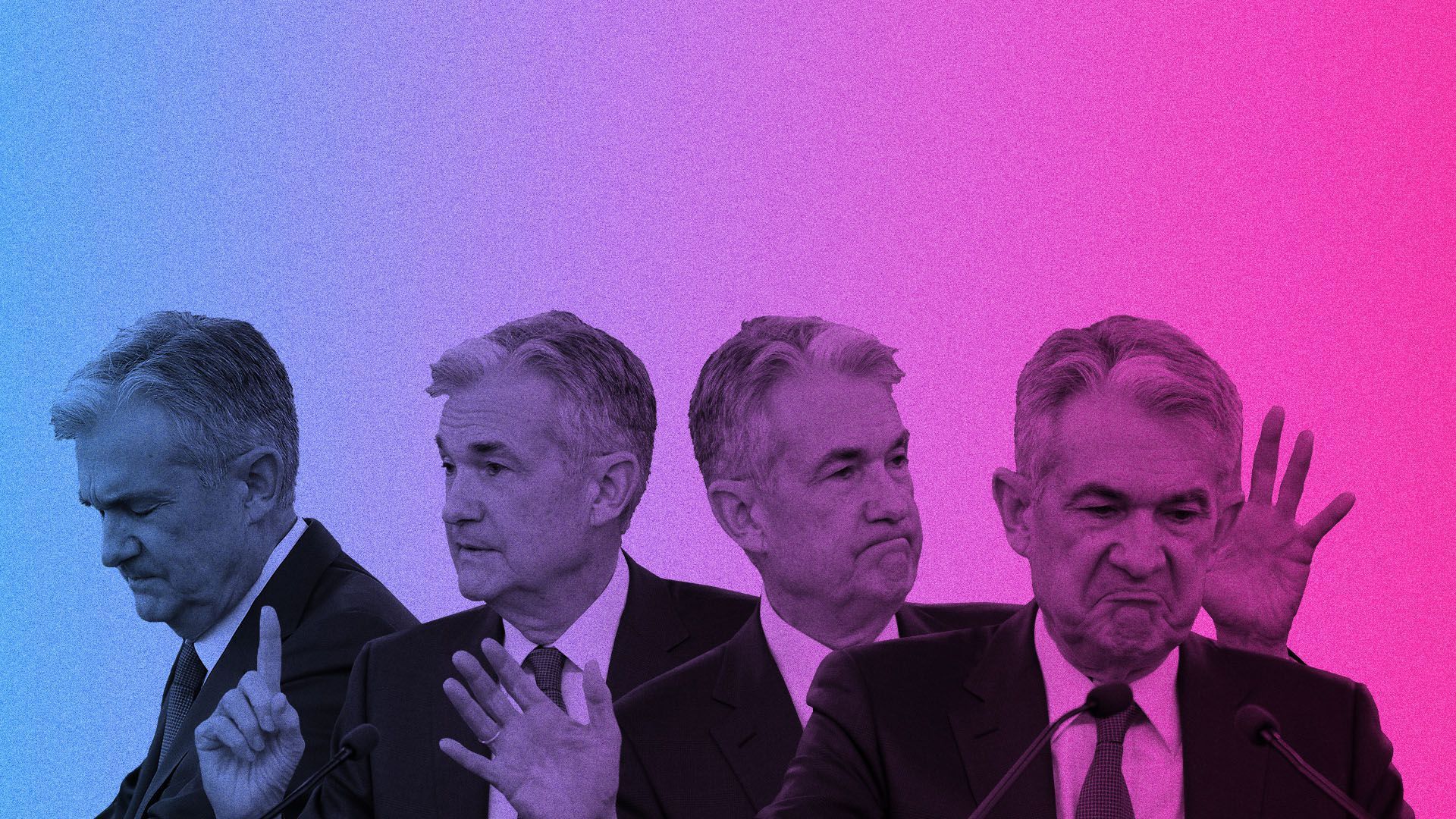The Fed's coronavirus response could have unintended results
Add Axios as your preferred source to
see more of our stories on Google.

Illustration: Sarah Grillo/Axios
Chair Jerome Powell and the Federal Reserve reacted with unprecedented speed to the coronavirus pandemic, but the central bank's actions could unleash a Pandora's box of unintended consequences.
Why it matters: The Fed is an unelected institution whose head is chosen by the president and its new programs have paved the way for its powers to be significantly amplified and politicized.
- "America has never seen anything like it," Peter Conti-Brown, a nonresident fellow at Brookings Institution, notes.
What it means: The loans made through its so-called special purpose vehicles give the Fed a strategic interest in keeping those companies afloat.
- This mean going forward it could either be charged with picking winners and losers — bailing out some companies while watching others fail — or adding a bonanza of new lending programs to provide financing to just about every corner of the economy.
What's happening: The Fed is prohibited from buying debt not backed by the government and from making loans that lose money, but it has emergency lending authority for “unusual and exigent circumstances,” an undefined term.
- The special purpose vehicles it has set up through the $2 trillion CARES Act and its facilities to buy corporate bonds, municipal bonds and "fallen angels" (bonds from companies recently downgraded from investment- to speculative-grade) could all very realistically see losses.
Flashback: The Fed announced in 2018 that it would reduce the purchases of U.S. government debt and mortgage-backed securities it had been accumulating since 2009 to stem the global financial crisis.
- Even though it had been nearly a decade since the support measures began, financial markets buckled and the Fed had to retreat.
- Then as a result of distress in the repo market in September, it started buying hundreds of billions of dollars more every month.
The intrigue: The Fed has set itself up to repeat this process, but now the buying would include corporate and municipal bonds as well as direct lending to companies.
- "They went down a slippery slope," Vincent Reinhart, chief economist at Mellon who previously spent 20 years at the Fed, tells Axios.
- "I am worried about where Fed will be a year from now."
Why you'll hear about this again: Having now opened its lending facility to private companies and accepted the possibility of losses, it's difficult to make the case that the Fed cannot "bail out" ordinary Americans.
- "A People’s Fed could plausibly give every worker a monthly zero-interest loan, and then forgive them all," Trevor Jackson, assistant professor of economic history at George Washington University, points out.
- "Even setting aside wage replacement, a People’s Fed could be buying and retiring student loans and medical debt."
Go deeper: The gamble to re-open the economy
